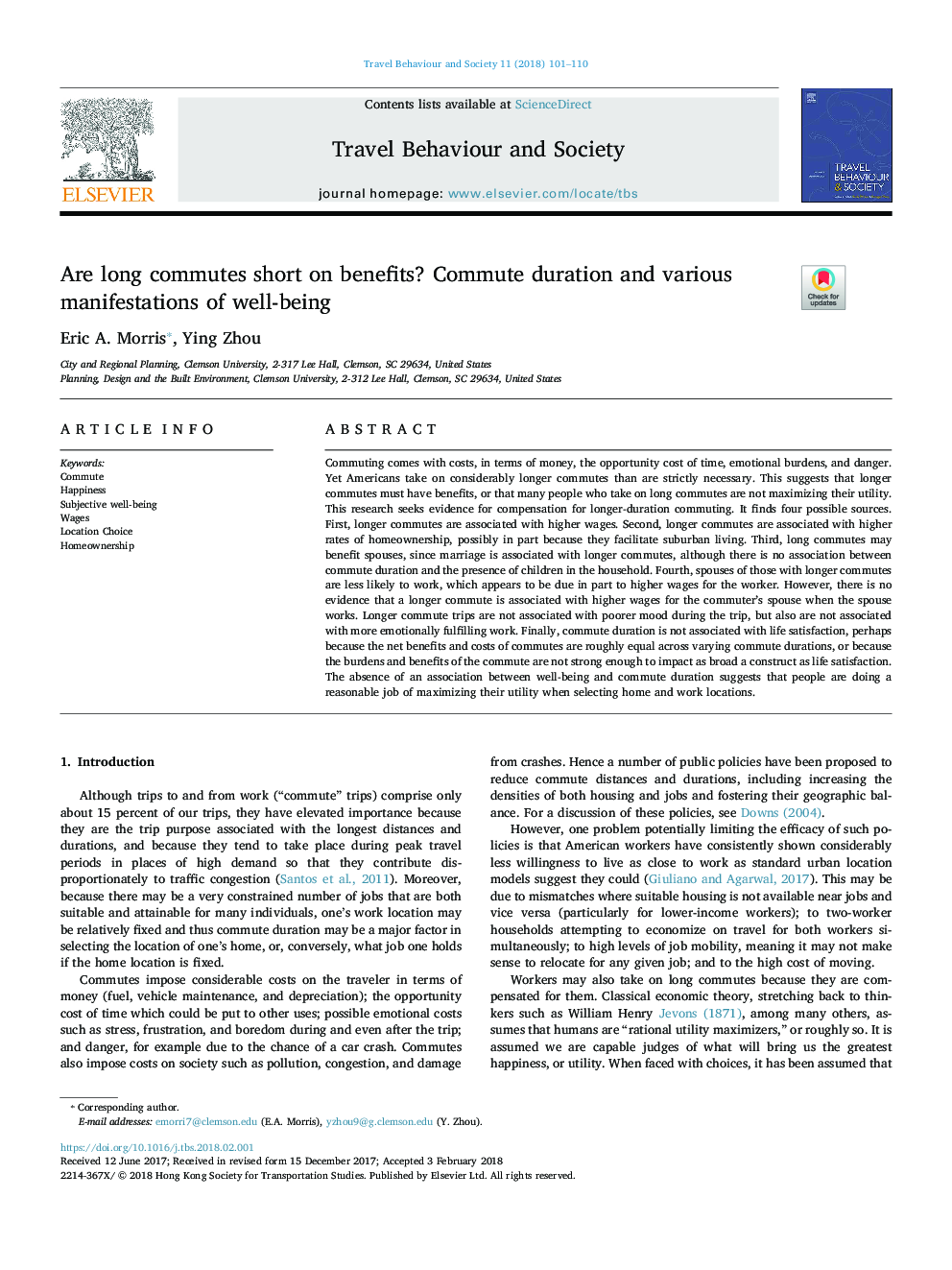| Article ID | Journal | Published Year | Pages | File Type |
|---|---|---|---|---|
| 6576348 | Travel Behaviour and Society | 2018 | 10 Pages |
Abstract
Commuting comes with costs, in terms of money, the opportunity cost of time, emotional burdens, and danger. Yet Americans take on considerably longer commutes than are strictly necessary. This suggests that longer commutes must have benefits, or that many people who take on long commutes are not maximizing their utility. This research seeks evidence for compensation for longer-duration commuting. It finds four possible sources. First, longer commutes are associated with higher wages. Second, longer commutes are associated with higher rates of homeownership, possibly in part because they facilitate suburban living. Third, long commutes may benefit spouses, since marriage is associated with longer commutes, although there is no association between commute duration and the presence of children in the household. Fourth, spouses of those with longer commutes are less likely to work, which appears to be due in part to higher wages for the worker. However, there is no evidence that a longer commute is associated with higher wages for the commuter's spouse when the spouse works. Longer commute trips are not associated with poorer mood during the trip, but also are not associated with more emotionally fulfilling work. Finally, commute duration is not associated with life satisfaction, perhaps because the net benefits and costs of commutes are roughly equal across varying commute durations, or because the burdens and benefits of the commute are not strong enough to impact as broad a construct as life satisfaction. The absence of an association between well-being and commute duration suggests that people are doing a reasonable job of maximizing their utility when selecting home and work locations.
Related Topics
Life Sciences
Environmental Science
Management, Monitoring, Policy and Law
Authors
Eric A. Morris, Ying Zhou,
